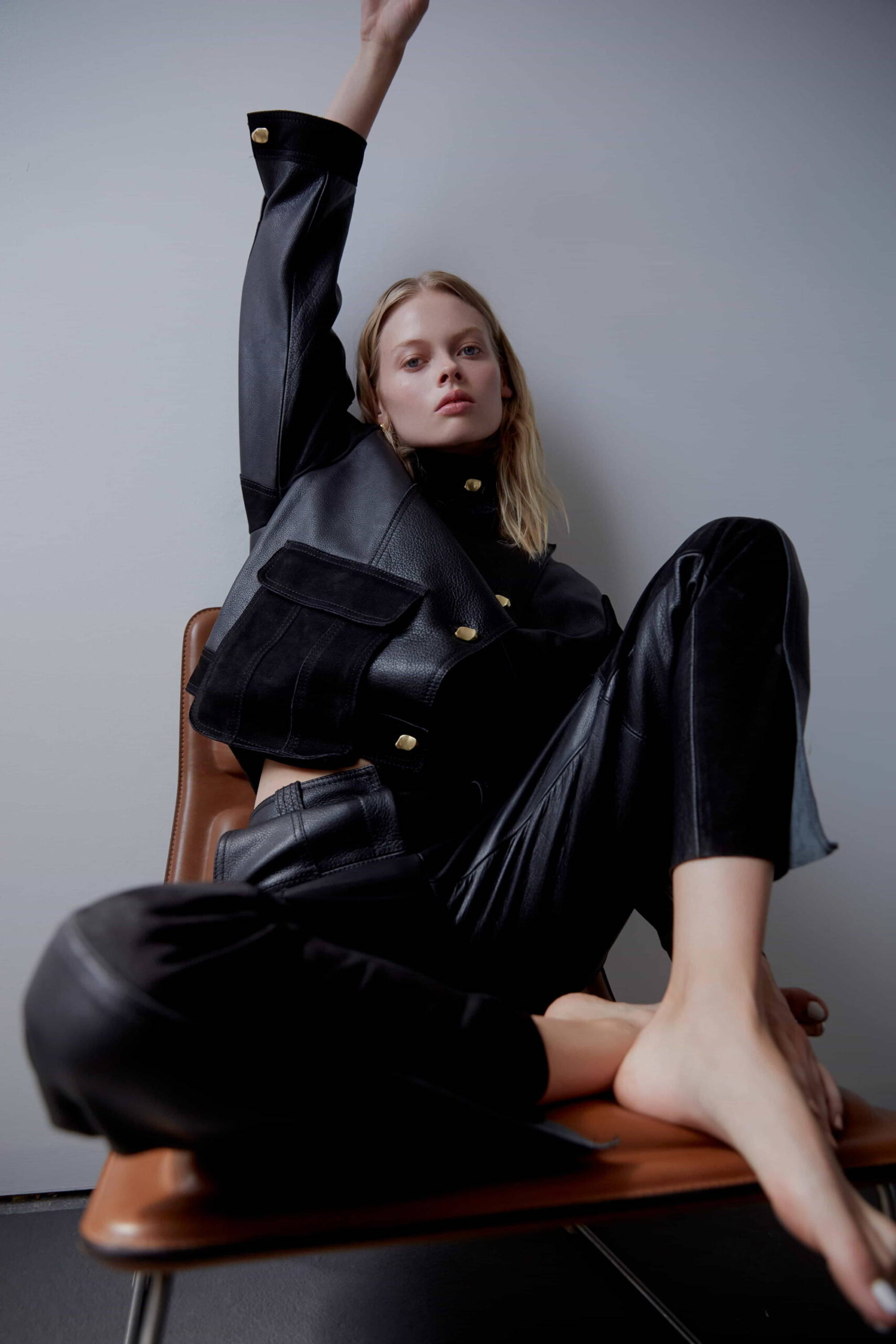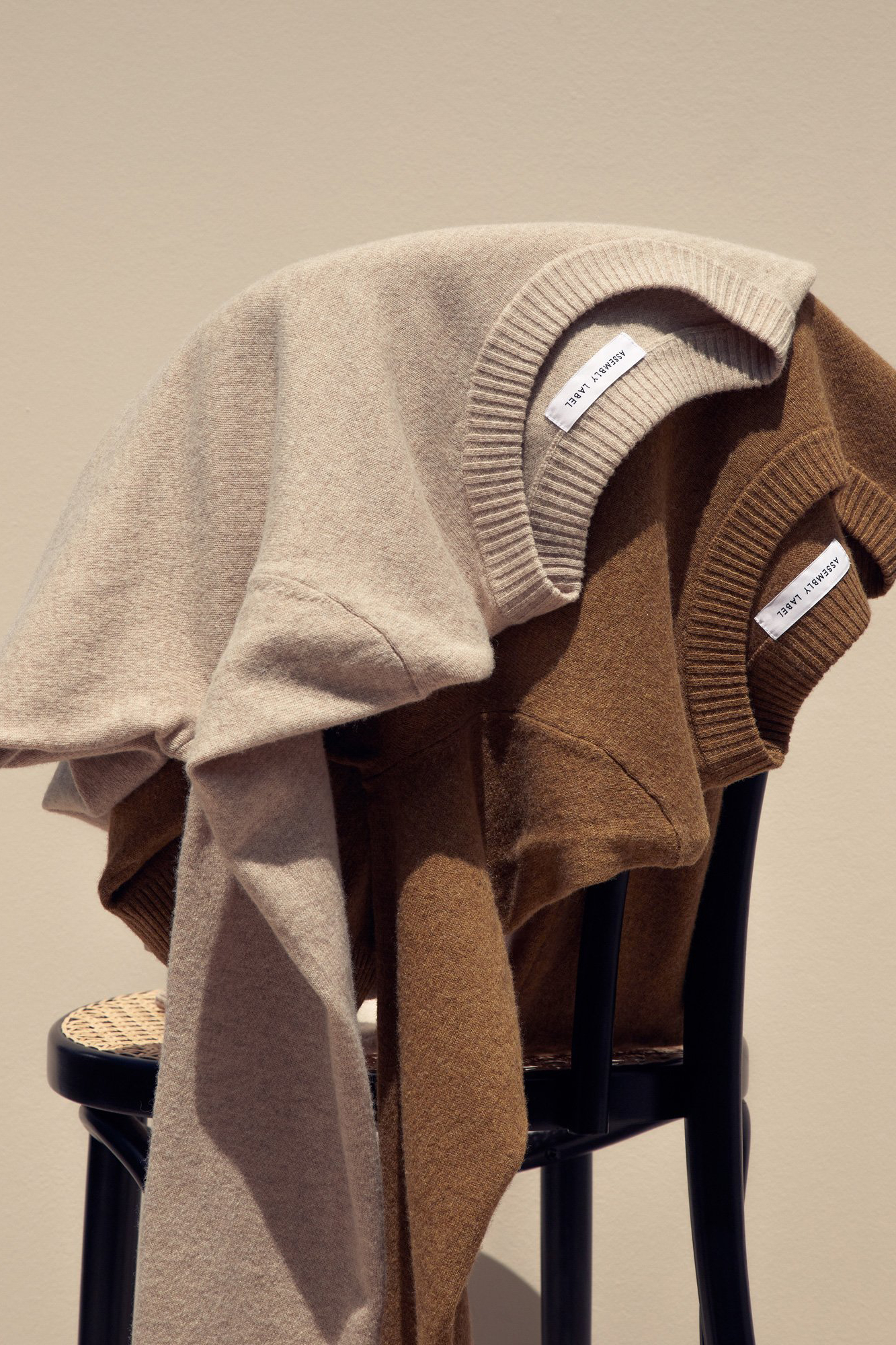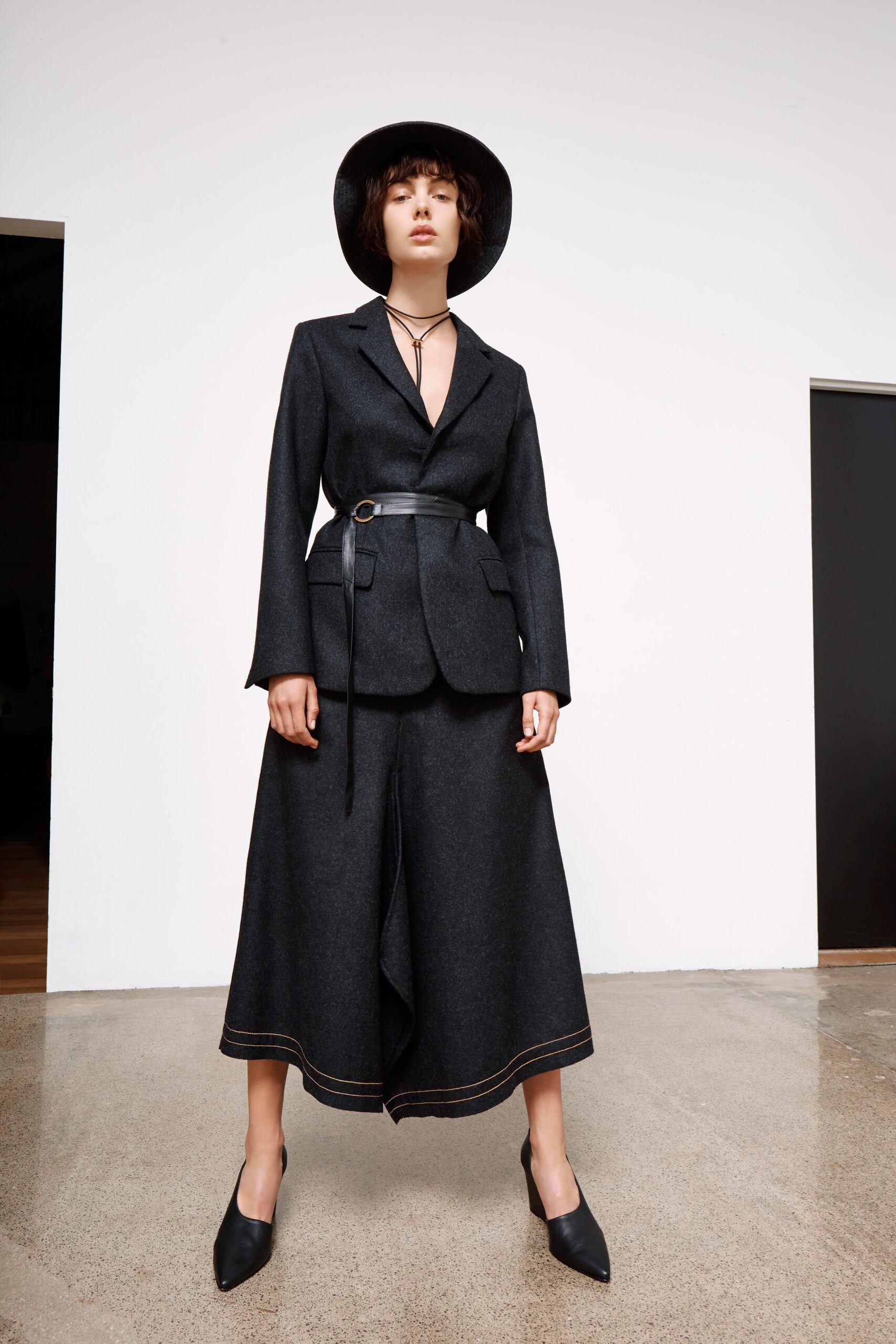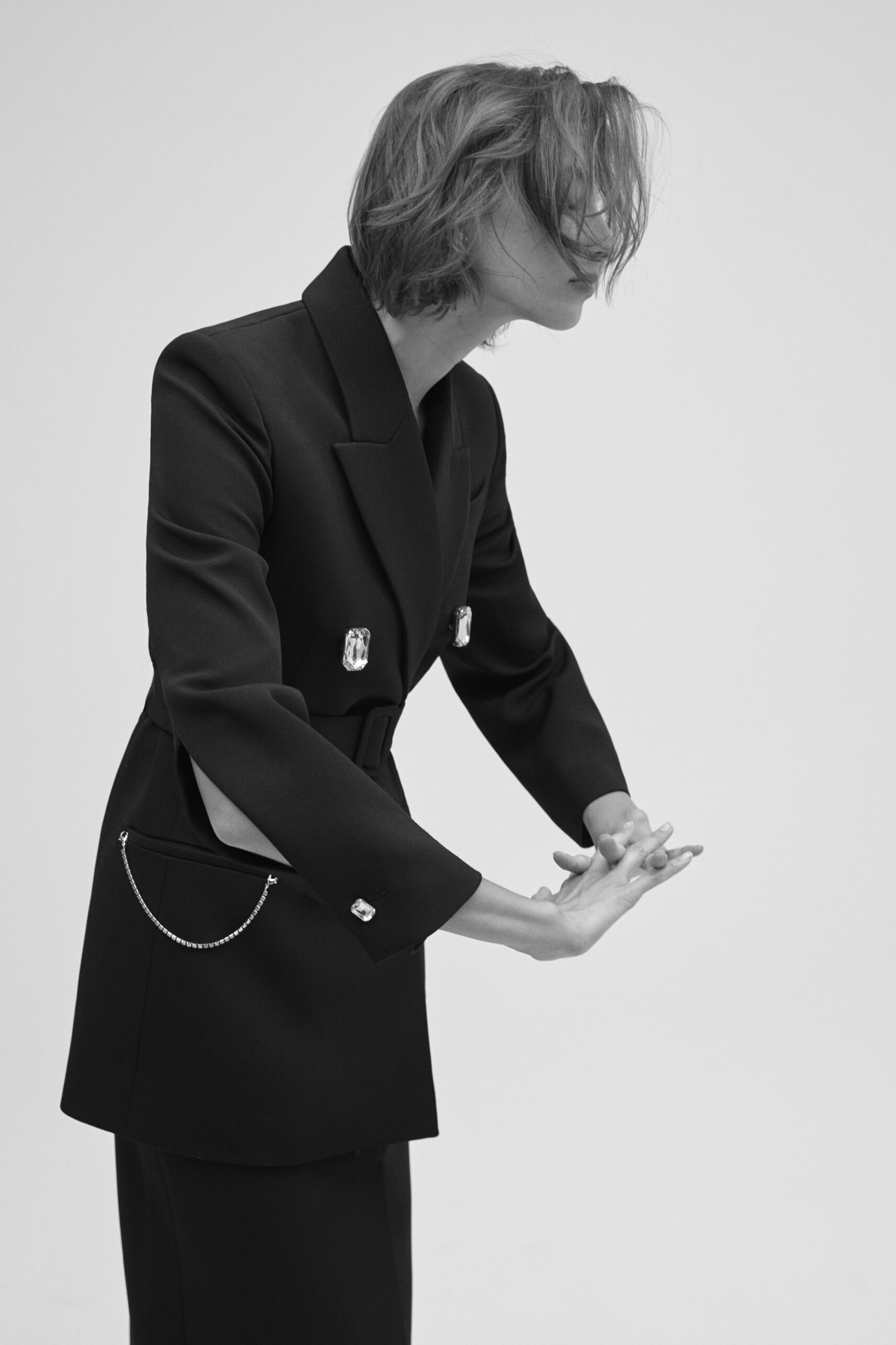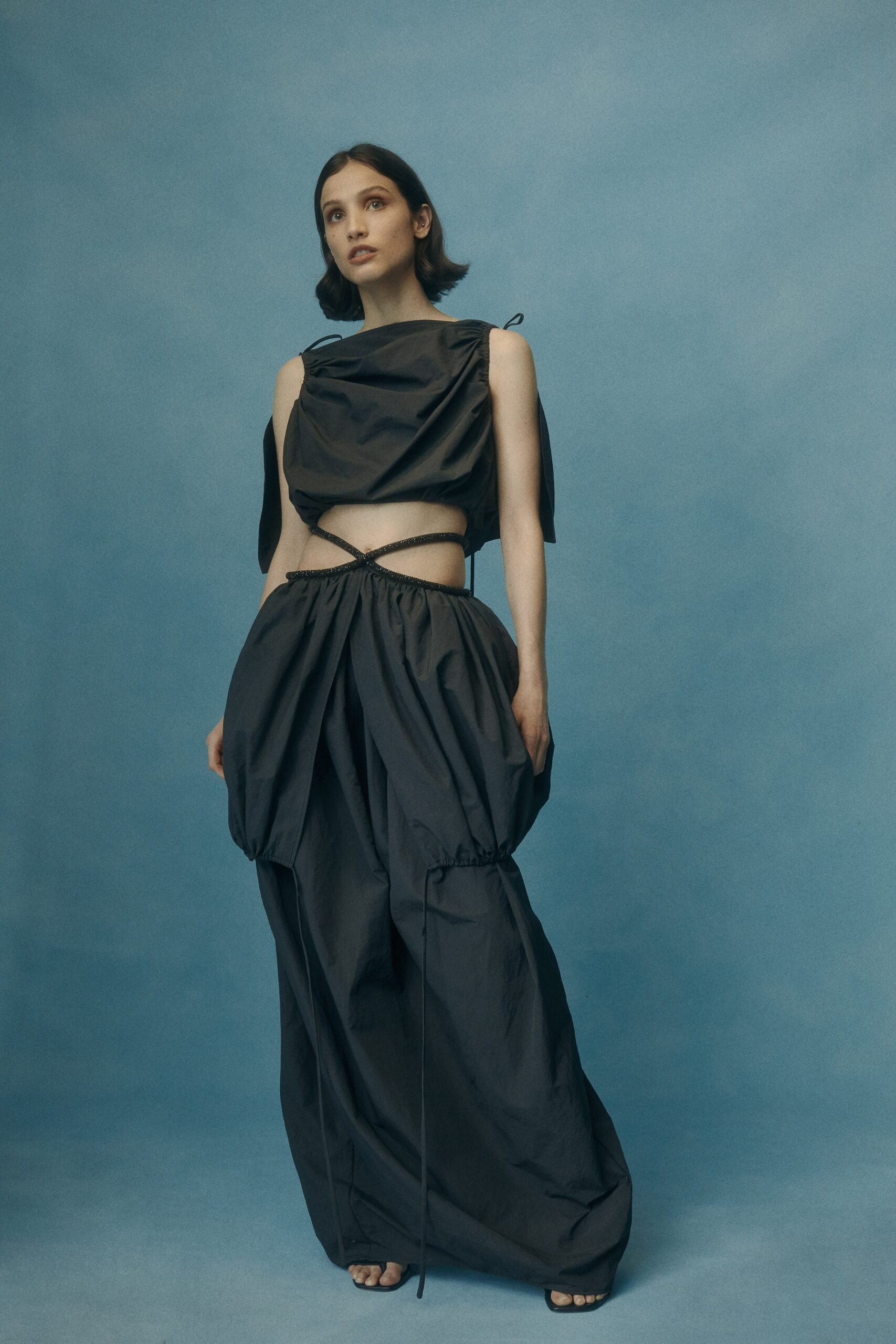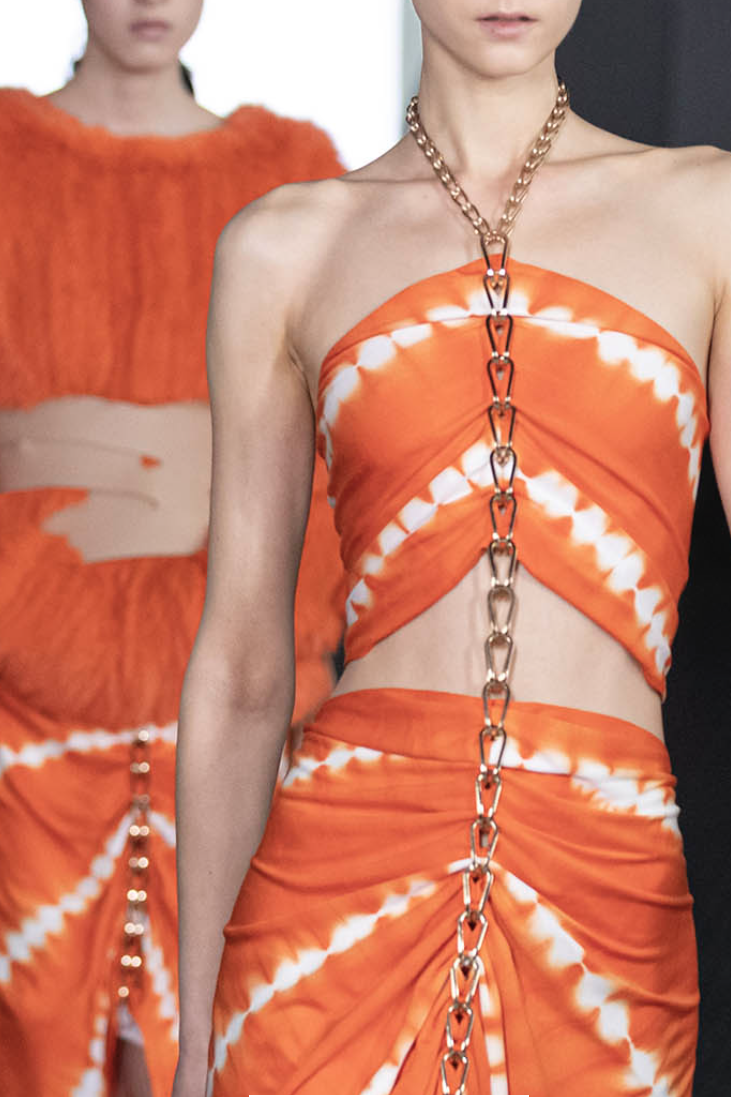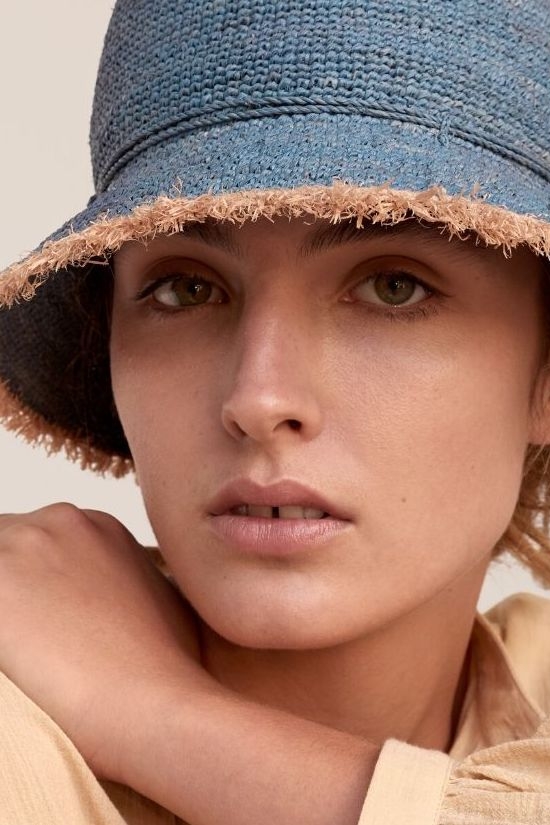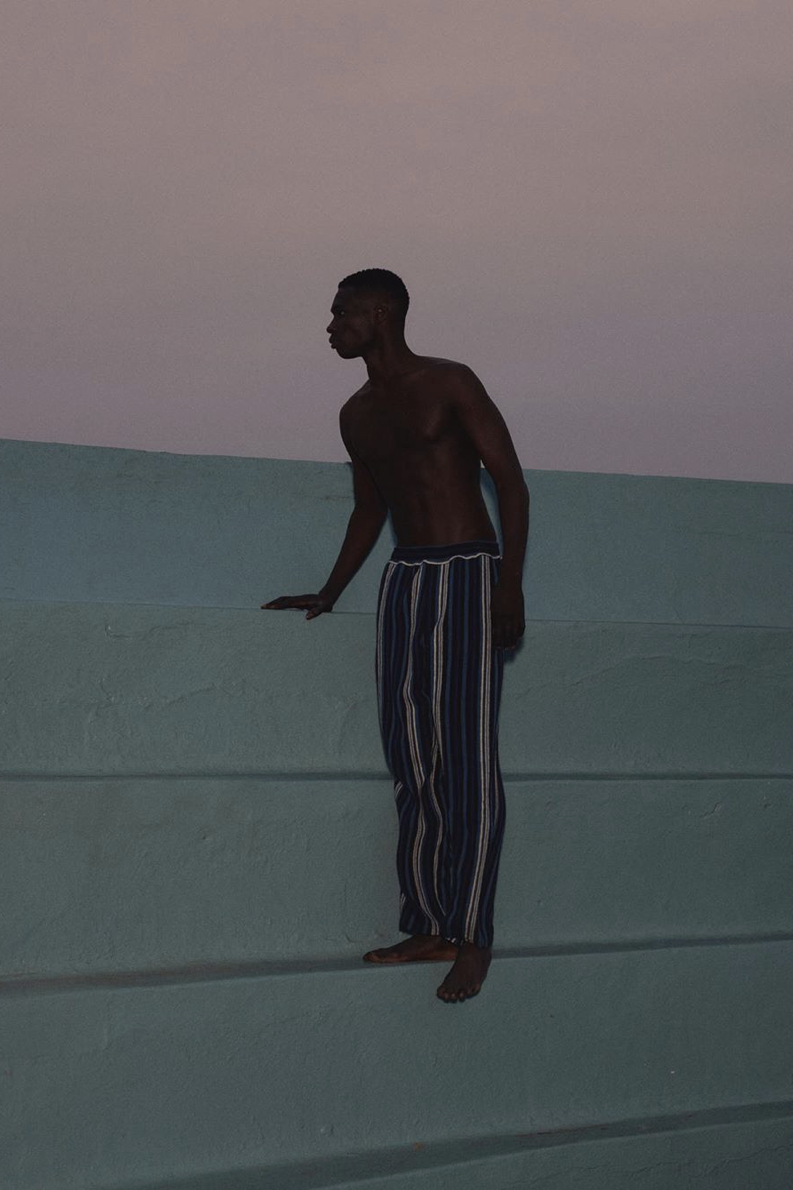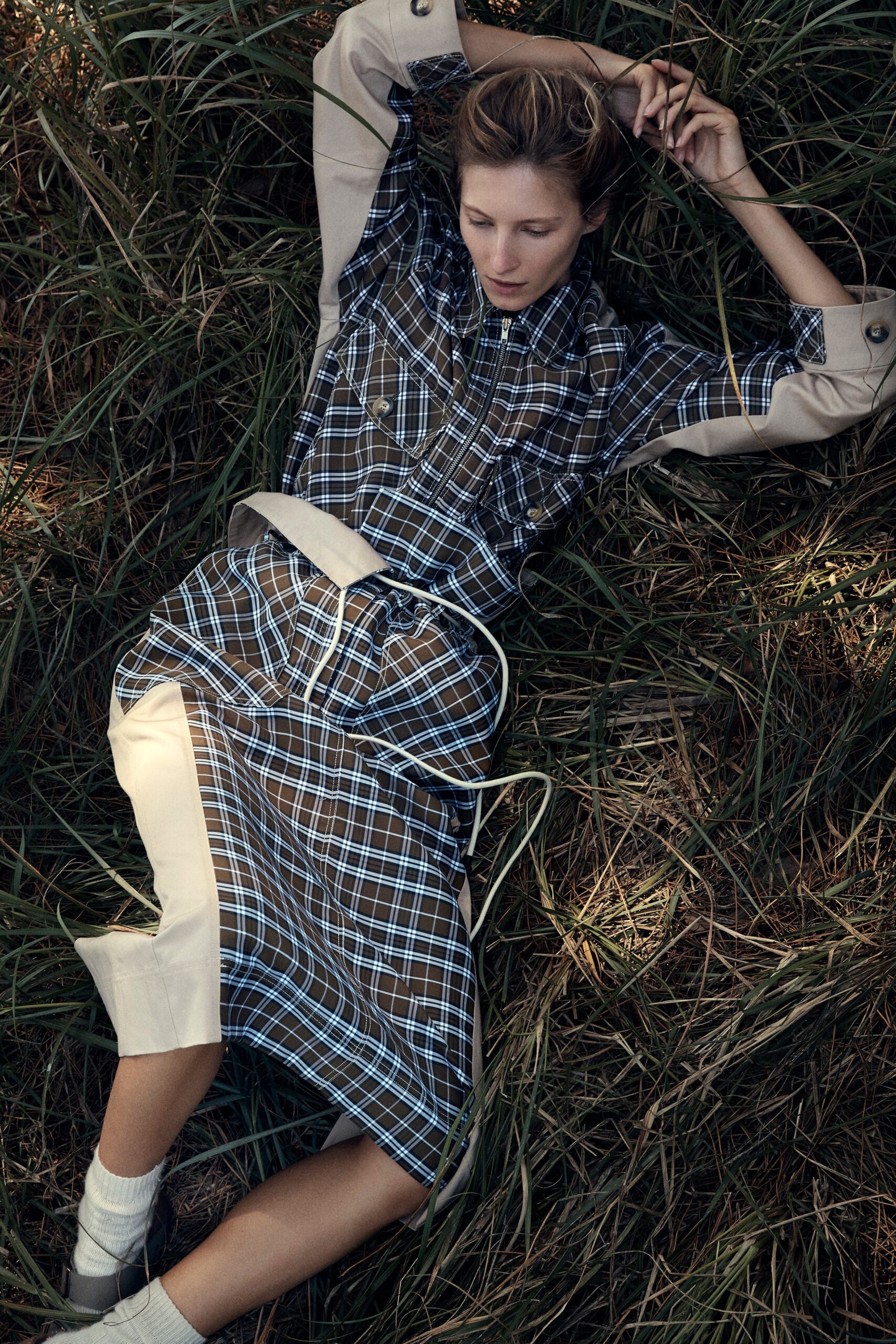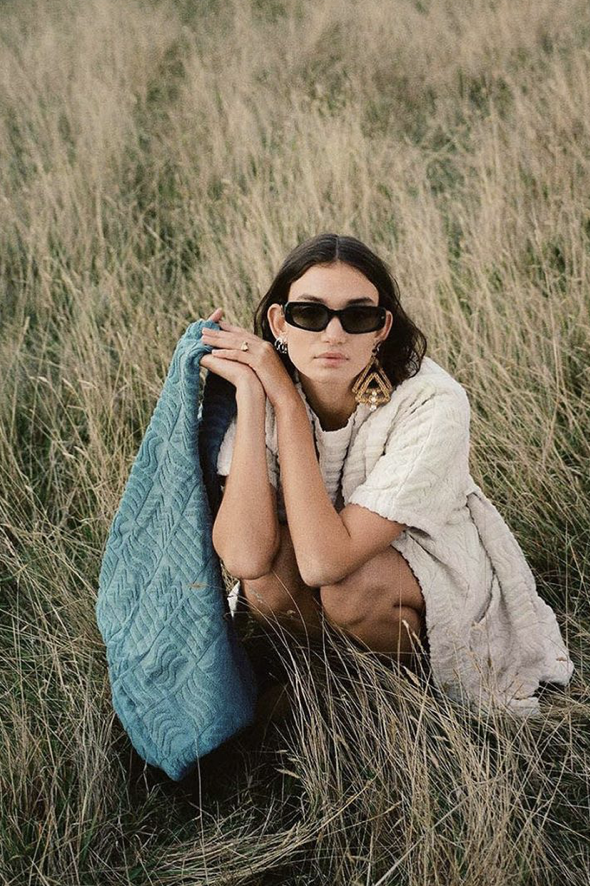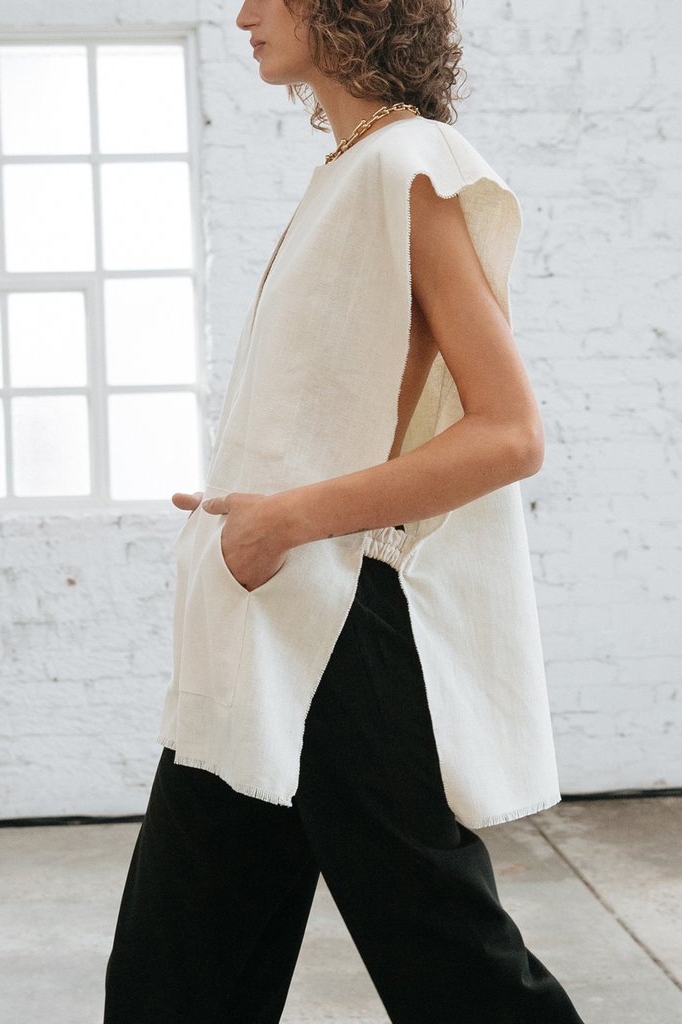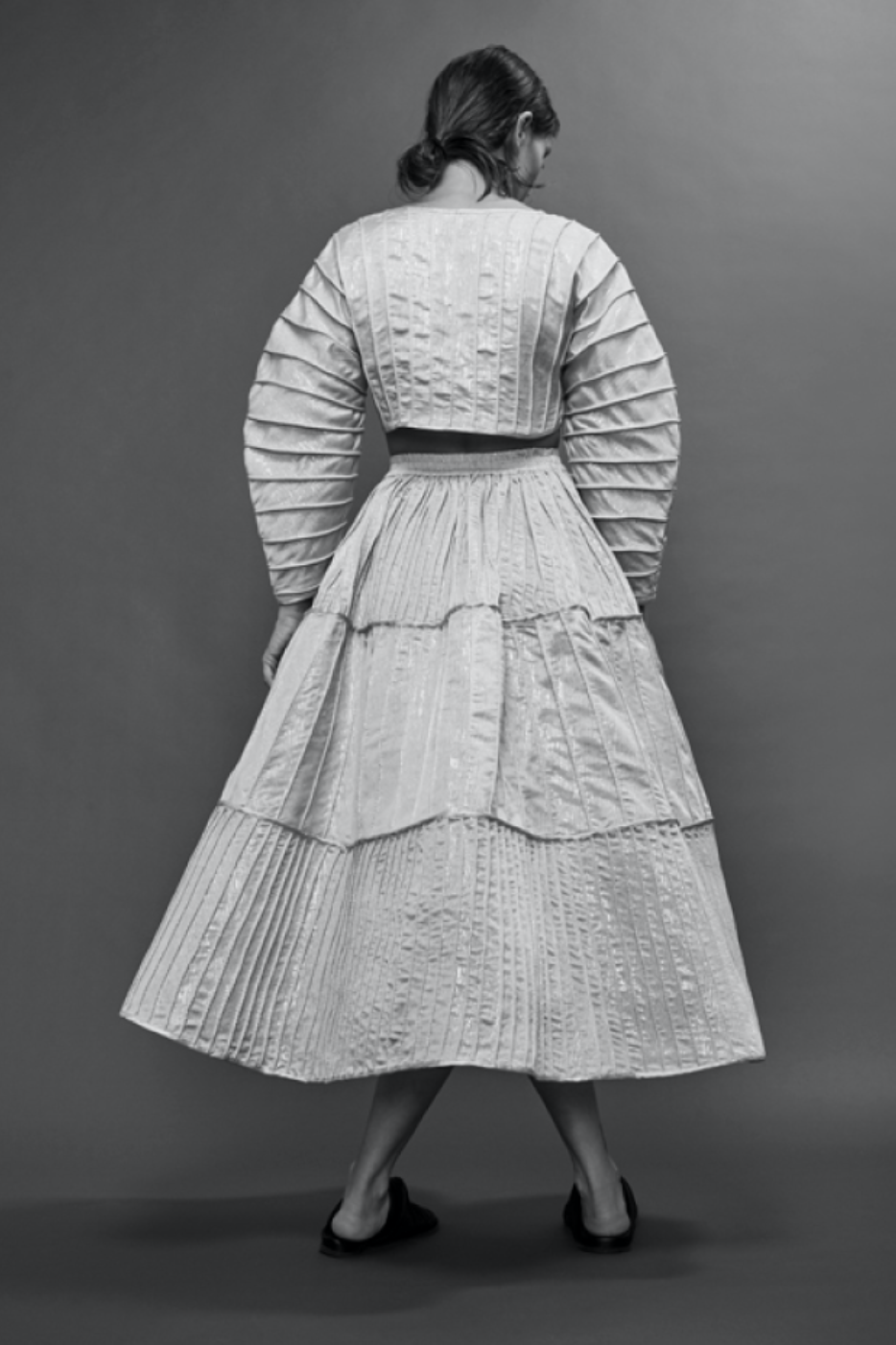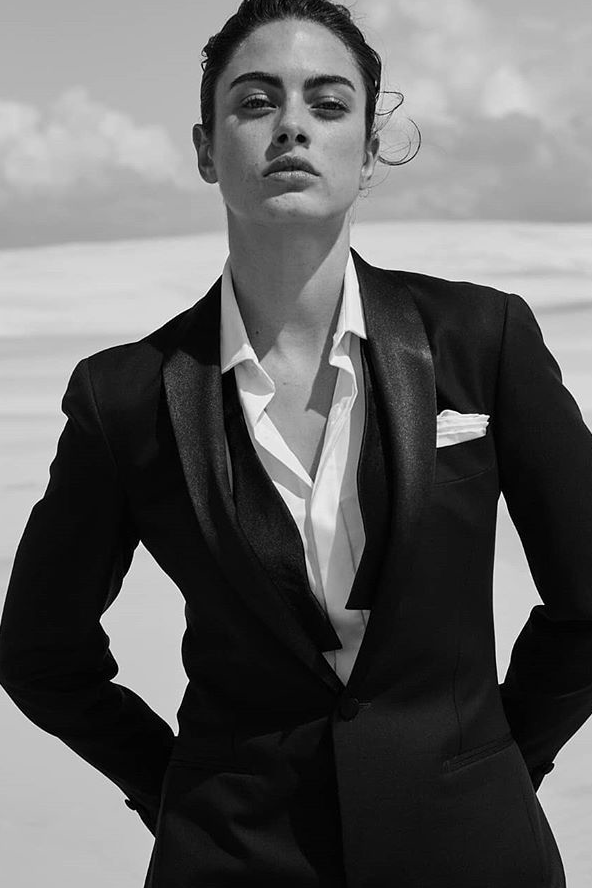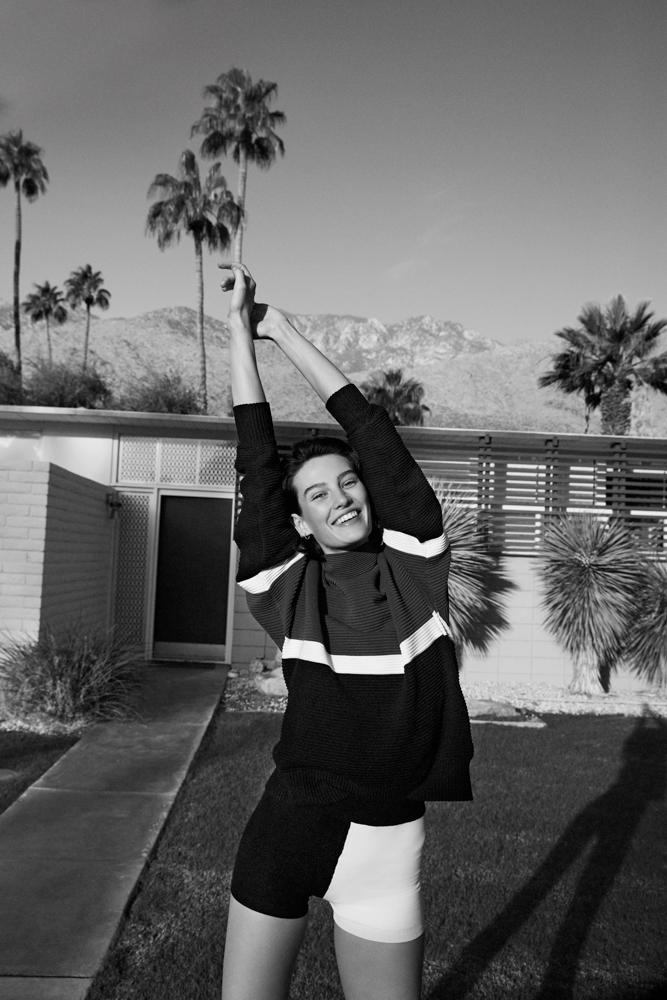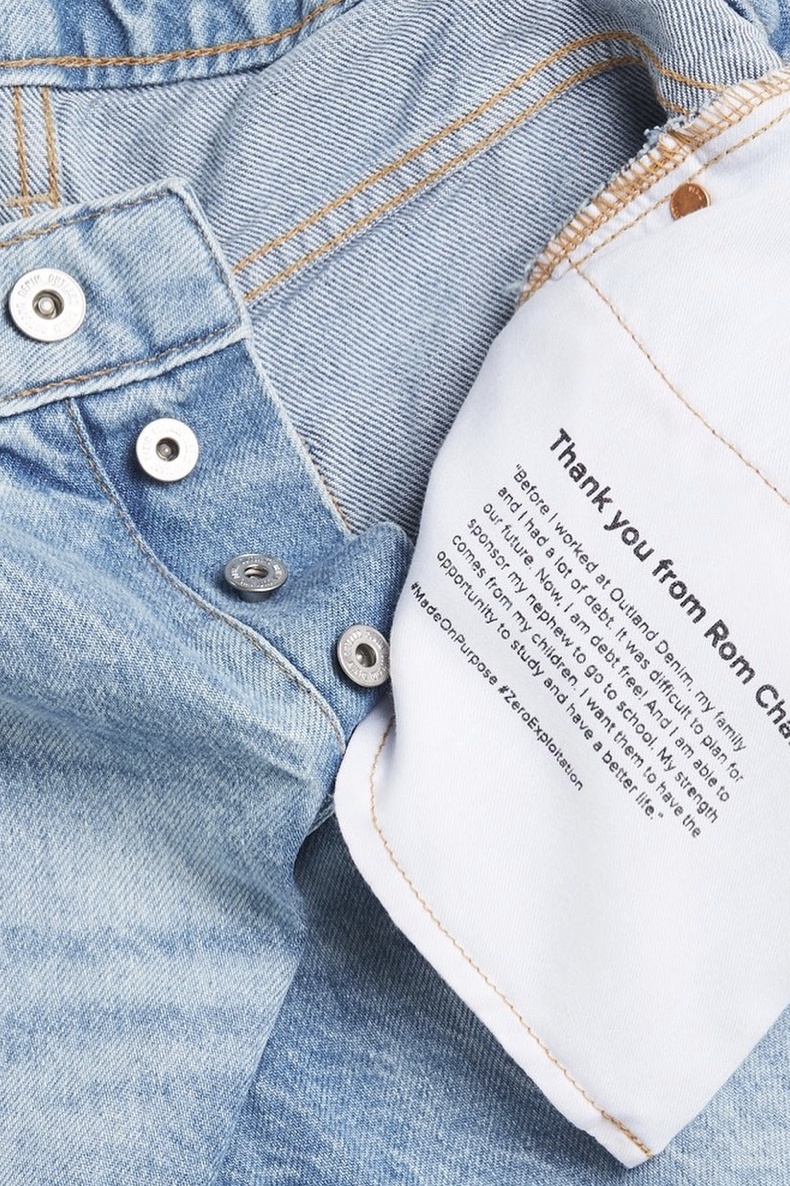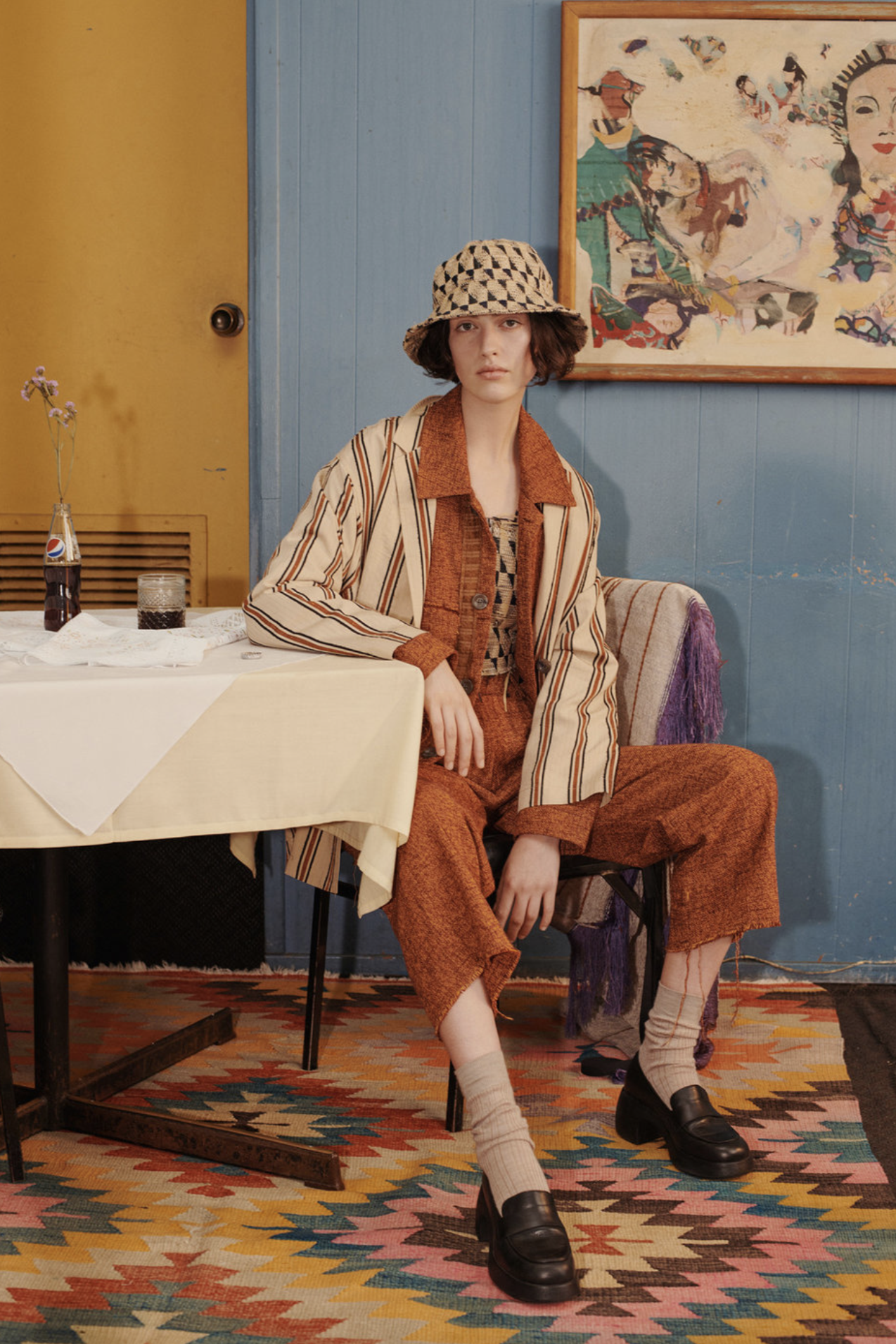We are living in such an extraordinary time as the Coronavirus crisis continues to impact the world. Here, in the beginning of a new dialogue with top creatives, we come together, online, with those who truly move us, inspiring us to change the way we think whilst reimagining our work models for the future. Meet Leila Naja Hibri, the newly appointed CEO of the Australian Fashion Council, whose guiding leadership is more crucial than ever. Here, she speaks about the importance of mentoring and how we can start strategising fashion’s way forward.
"I am curious to see whether we can come together as an industry. Not a lot of people realise that the fashion business in Australia generates approximately $30 billion a year.”
Leila Naja Hibri
"I am curious to see whether we can come together as an industry. Not a lot of people realise that the fashion business in Australia generates approximately $30 billion a year.”
Leila Naja Hibri
Leila Naja Hibri has a kind of electric energy, a buzz around her, that changes the dynamic in a room. She took up her role as CEO elect of the Australian Fashion Council in February this year, determined to create a path for change by way of its mentor programming, at the same time opening up channels for debate and discussion in industry. That was before the pandemic lockdowns. Now, Naja Hibri has an even louder battle cry.
The scope of her new role was always enormous: a merger two years ago saw the AFC and the Council of Textile & Fashion join forces. Upon her appointment, and prior to the crisis, Naja Hibri told us: “We need to explore ways to do things differently. My number one priority is to help the industry grow and thrive sustainably. Australian fashion has so much potential. We have so much creativity and innovation, but I am curious to see whether we can come together as an industry. Not a lot of people realise that the fashion business in Australia generates approximately $30 billion a year.”
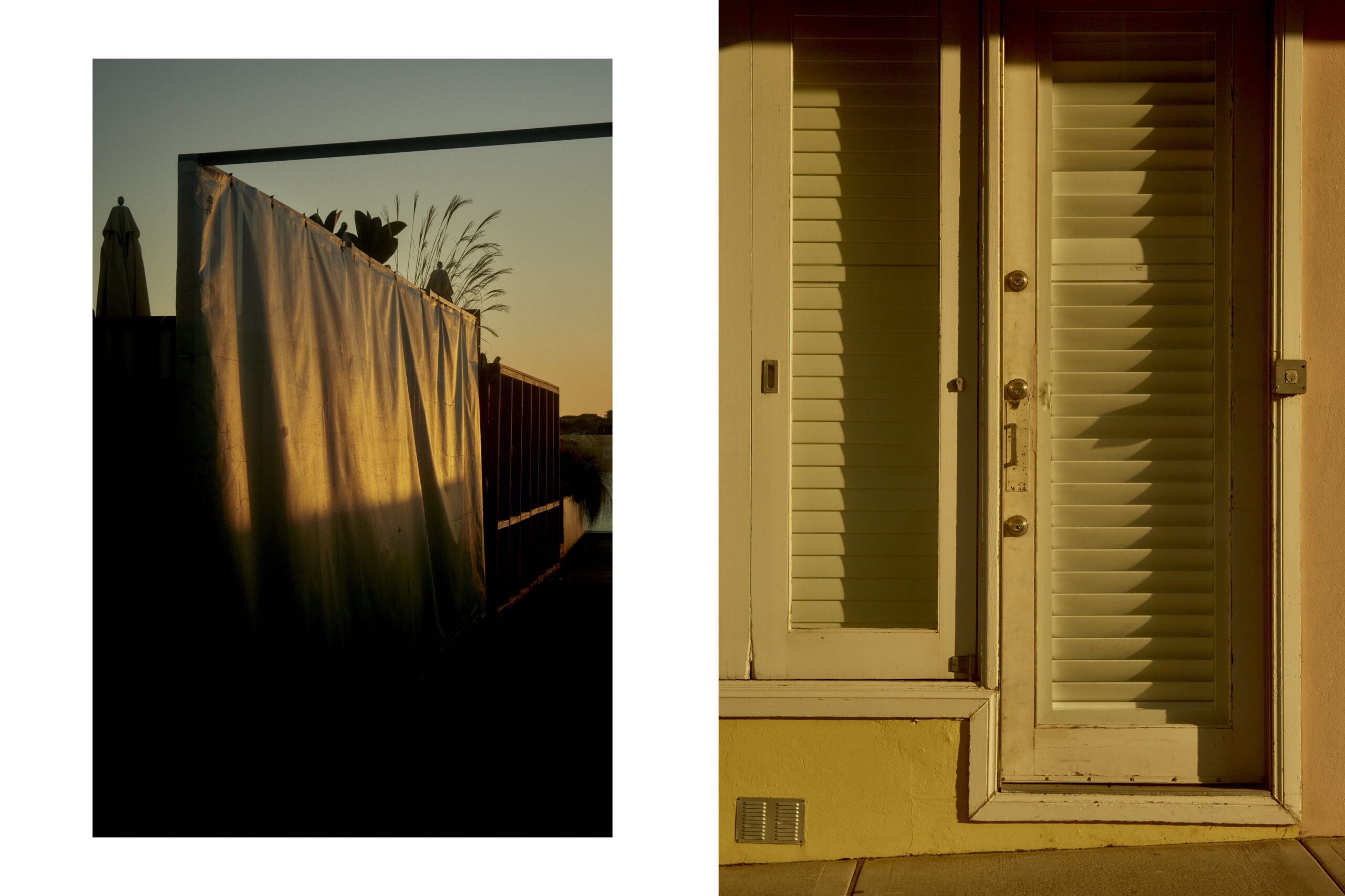
Images by Saskia Wilson.
Understanding the full impact Covid-19 has had on the landscape will take time, however it’s clear decisive steps are critical now. Naja Hibri says, “It’s unbelievably tough for everyone. When I first started in this role, we had an off-site meeting as a team, with the purpose of discussing AFC’s ‘why’, its reason-to-be. Then our whole worlds changed. Every industry has been impacted. For the fashion industry it has also been unthinkably hard – at the beginning of the crisis there was a lot of confusion about the lockdowns and what was safe for employees, and we saw a very panic-driven reaction by some brands to stand down teams and stop taking orders. To be fair, a lot of income streams virtually stopped, very little was coming in from online and so what do you do when, suddenly, you can’t sustain your business?”
Immediately, the CEO’s focus is on building solidarity. “I think one of the biggest questions to consider is how we should unite, how can we help each other? What are the opportunities here and how should we change and work together to make this a better industry for the people who work in it and for our businesses to survive? There’s a lot of money attached to this industry and we need to support it.”
"Every industry has been impacted. For the fashion industry it has also been unthinkably hard – at the beginning of the crisis there was a lot of confusion about the lockdowns and what was safe for employees, and we saw a very panic-driven reaction by some brands to stand down teams and stop taking orders. To be fair, a lot of income streams virtually stopped, very little was coming in from online and so what do you do when, suddenly, you can’t sustain your business?”"
Leila Naja Hibri
"Every industry has been impacted. For the fashion industry it has also been unthinkably hard – at the beginning of the crisis there was a lot of confusion about the lockdowns and what was safe for employees, and we saw a very panic-driven reaction by some brands to stand down teams and stop taking orders. To be fair, a lot of income streams virtually stopped, very little was coming in from online and so what do you do when, suddenly, you can’t sustain your business?”"
Leila Naja Hibri
Naja Hibri admits that involves rethinking the entire fashion system. “I think we do need to question the basics: why do we have four seasons, why do we follow certain trends, why do we move everything overseas, why can’t we sell less and then rethink our operations and our efficiency? In my mind, that is the start and the end of this conversation, and there is so much to talk about. Very clearly, and more immediately, I think it’s about going digital, it’s about redirection and efficiency. If there is a silver lining to any of this, in terms of our industry, it is an opportunity to improve the way we operate.”
So how is the CEO personally remaining buoyant? “I had a moment of feeling greatly overwhelmed early on. I felt almost helpless. Then I did what I usually do when times are tough, I go into survival mode or crisis management, I started to break down what I could do to help. I did find myself waking at four o’clock every morning and sending out emails, to feel in some sort of control, but now it’s very much about taking it day by day. There’s something calming, too, in the fact that we now all suddenly have the time to take a minute to talk, to be at home with family, to cook. In terms of my role, I have been asking questions, speaking to so many people in order to understand what we need to do to effect change, and from there it’s about being as present in the moment as possible.”
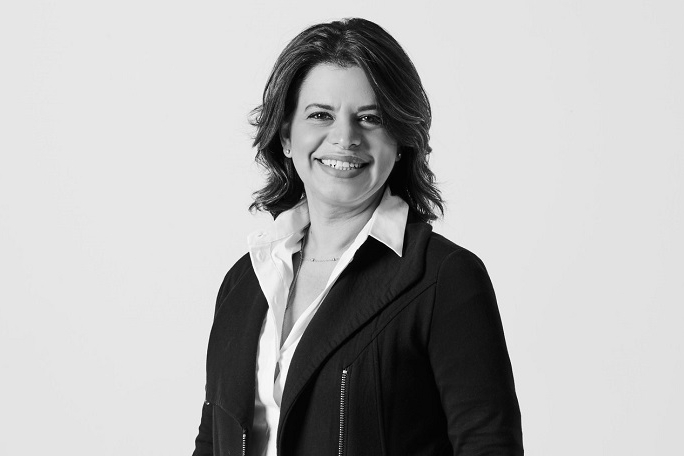
Leila
Naja Hibri.
Throughout her career, Naja Hibri has always been committed to mentoring young professionals – in recent years, she worked closely with the AFC, participating in its educational workshops and as a mentor for its Curated program (a collaborative, retail and business development platform, supporting Australia’s emerging and independent fashion labels). “I think it is crucial to share your knowledge and experience, to try to give back a little, that’s very important to me,” she says.
That line of thinking saw Naja Hibri invited onto the AFC board, followed by her nomination to CEO. “As much as I was excited about the opportunity, I was also a little hesitant. I’m not a fashionista,” Naja Hibri laughs. “I love fashion and I love aesthetically beautiful things, but I don’t want my life and work to revolve around the perceived glamour of the land of fashion. I made that very clear in my talks with the board. I wanted to take on a strategic role, where I could work with different stakeholders and bring a fresh perspective to things; our industry can become something really special if we focus on harnessing sustainability, education, diversity, creativity and innovation.”
“I think one of the biggest questions to consider is how we should unite, how can we help each other? What are the opportunities here and how should we change and work together to make this a better industry for the people who work in it and for our businesses to survive?"
Leila Naja Hibri
“I think one of the biggest questions to consider is how we should unite, how can we help each other? What are the opportunities here and how should we change and work together to make this a better industry for the people who work in it and for our businesses to survive?"
Leila Naja Hibri
It’s obvious the CEO has an extraordinary mind for both the business and creative side of fashion: “When I was younger, I used to say that I had no talent, meaning I couldn’t draw or play music well. My daughters, thank goodness, have a lot of it,” she says. “As you grow older, you start to challenge yourself and your preconceived ideas – I now question what creativity really stands for. I know I’m creative when it comes to thinking outside the square in business and brainstorming ideas.”
Naja Hibri began her career with an internship at Arthur Andersen, the top accounting firm at the time of her graduation from Sydney University. “I guess I found it somewhat dry and boring,” she admits. “Having said that, I am the first to acknowledge that having a finance-economics background has helped me endlessly along the way.”
She and her then husband relocated to Lebanon to be closer to family and start their own. In Beirut she worked in an advisory role to the United Nations Development Program before moving back to Sydney and working part-time as an accountant whilst raising her young family. “The long and the short of it is that I began to question what I really wanted to do. I was not loving accounting, working numbers for the sake of numbers wasn’t fulfilling for me, and I had this pull towards fashion. I then enrolled in a Marketing and Management course at MGSM and started to apply for buying jobs. I was good at numbers and thought it would be great to apply that skill in an area I was interested in. So I applied and applied and applied and then finally, don’t ask me how, I landed a maternity leave role at Prada as an assistant buyer. That was a very interesting time in my life. I went back to basics, photocopying, doing very entry-level tasks and earning less money than I did as a fresh graduate. But it was an important shift and sacrifice that I needed to make. And it gave me some invaluable insight into the world of luxury fashion.” Naja Hibri then took on roles at Luxottica, the luxury eyewear group, Bendon lingerie and the accessories brand Helen Kaminski before securing the top job at AFC.
“We do need to question the basics: why do we have four seasons, why do we follow certain trends, why do we move everything overseas, why can’t we sell less and then rethink our operations and our efficiency? In my mind, that is the start and the end of this conversation, and there is so much to talk about.”
Leila Naja Hibri
“We do need to question the basics: why do we have four seasons, why do we follow certain trends, why do we move everything overseas, why can’t we sell less and then rethink our operations and our efficiency? In my mind, that is the start and the end of this conversation, and there is so much to talk about.”
Leila Naja Hibri
Fashion as a business has always been her focus. Before the crisis, she told us: “I think many of the traditional players in the industry are stuck with an antiquated mentality and are refusing to move with the times. I know I don’t have all the answers, but I also know that we need to challenge ourselves and the status quo. I see this surge in embracing sustainability and ecology as a great thing. I love it, but I am also a little sceptical sometimes about some brands’ real motivation. Is this a PR exercise or a genuine effort to improve their environmental and social impact?”
“Certainly, I am resilient. I had this unusual upbringing in Beirut, we would be in very dangerous situations where my brother and I, as teenagers, would be mounting arguments to try and convince our parents to let us go out despite the bombs and gunfire. It's hard to fathom, but it definitely toughened me up.””
Leila Naja Hibri
“Certainly, I am resilient. I had this unusual upbringing in Beirut, we would be in very dangerous situations where my brother and I, as teenagers, would be mounting arguments to try and convince our parents to let us go out despite the bombs and gunfire. It's hard to fathom, but it definitely toughened me up.””
Leila Naja Hibri
When asked what she thinks has been the key to her professional achievements, Naja Hibri is low-key: “Timing and luck mostly, but I’m also a very hard worker, a smart worker in the sense that I find ways to do things efficiently and I don’t always follow the rules, I like to push the boundaries.” She also points to a childhood spent growing up in Lebanon. “Certainly, I am resilient. I had this unusual upbringing in Beirut, we would be in very dangerous situations where my brother and I, as teenagers, would be mounting arguments to try and convince our parents to let us go out despite the bombs and gunfire. It’s hard to fathom, but it definitely toughened me up.”
She also has a kind of limitless energy for seeking out the new. “I’m a big reader. It’s a little embarrassing but nothing excites me more than a good book, I also love learning. I am a sponge for knowledge and have been like that since I was a child. It’s a huge passion passed on to me by my parents,” Naja Hibri explains. “Ultimately, I want to continue growing as a person, to become a better version of myself and to help others do the same. I don’t want to live in this world and watch things go on around me that feel unjust; not right. I’d rather do something about it if I can.”
Australian Showcase
Here at UMENCO, we love to support local talent.



